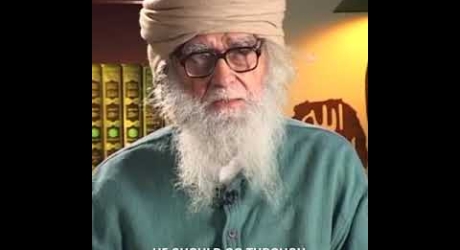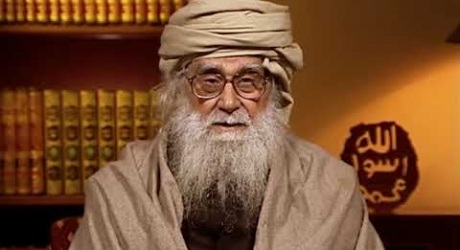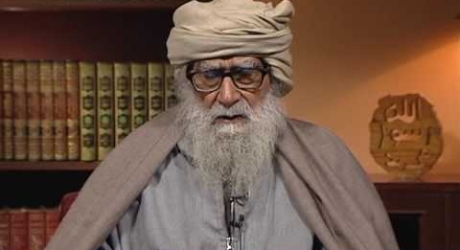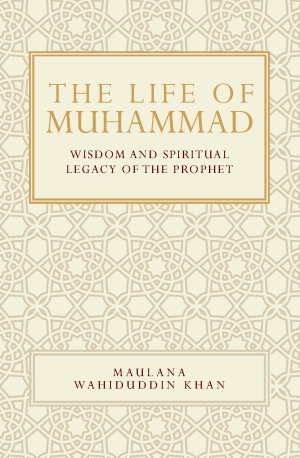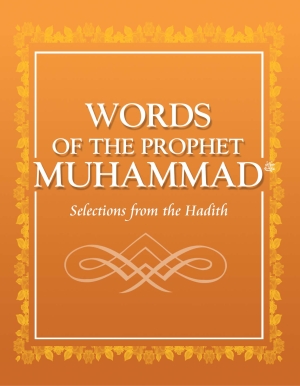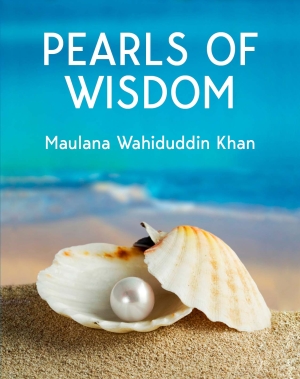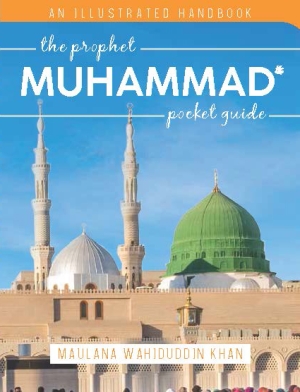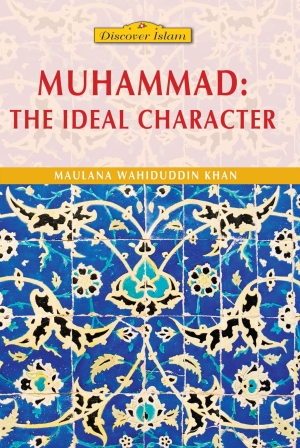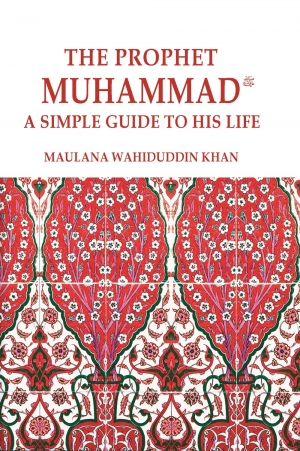The prophet is a role model for all humanity. This has been mentioned in the Quran in these words:
"You have indeed in the Prophet of God a good example for those of you who look to God and the Last Day and remember God always." (33: 21)
It is clear from this verse that in the life of the Prophet Muhammad, there is a model for every human being. Biographies of the Prophet are full of incidents that show his life as a good model for humanity. Being God's humble servants, we should always remain in a state of trepidation before our Lord and the life hereafter. Everything in the universe should serve to remind us of God. In every event, we should see the hand of the Almighty, and every object should portray God's signs. In all matters of a worldly nature, we should remember that everything will finally be referred to God. Fear of hell should make us live humbly among our fellows, and longing for Paradise should impress on us the significance of this world. So conscious should we be of God's greatness that any idea of demonstrating our greatness should appear ridiculous. No criticism should provoke us, and no praise should make us vain. This is the character we should build in ourselves as displayed to us in the conduct of His Prophet.
Featured Articles
Featured Videos
FAQs
Prophet Muhammad was an embodiment of virtues a true believer must imbibe and uphold. He was a well-wisher for mankind. His entire life is a testament to this fact. He never discriminated between people on the basis of their colour, creed, or social status; in the heydays of slavery, he advocated freedom of slaves; in an environment full of resentment and staunch opposition, he always adopted a forgiving approach, never avenging any wrong done to him.
Prophet Muhammad taught believers to become conscientious members of society. He advised that ‘A Muslim is one from whose tongue and hand people are safe.’ (Sunan al-Nasai, hadith no. 4998)
He propagated caring and supporting the sick, feeding the hungry and being kind, living as no-problem persons for neighbours, refraining from using offensive names, and caring for animals. He encouraged responsible living and judicious utilization of natural resources, such as water, even if one has limitless access to them. Once the Prophet passed by a Companion when he was performing ablutions and said to him:
‘What is this extravagance?’ The Companion asked, ‘Can there be extravagance in ablutions?’ The Prophet replied, ‘Yes, even if you are on the bank of a flowing river!’ (Sunan ibn Majah, hadith no. 460)
Source: The Seeker’s Guide
The Prophet Muhammad exemplified peace and tolerance throughout his life. Once, on being asked for a master advice, he replied: ‘Don’t be angry.’ He said that the strongest among us is the one who can control his anger. He propagated the pursuit of the easier choice of peace and tolerance as against being intolerant or violent.
During the course of his lifetime, there were certain defensive skirmishes that took place. Even during these, Prophet Muhammad strictly prohibited the ill-treatment of non-combatants and prisoners of war. For example, the Prophet did not approve of any ill-treatment of prisoners of war that were taken after the Battle of Badr:
He instructed Muslims to share equal food with the prisoners. (Majma ul Zawaid, hadith no. 10007)
He declared that any prisoner who could teach ten children of Madinah to read and write would be set free. (Musnad Ahmad, hadith no. 2216)
It is also worth noting that in future battles, no prisoners of war were taken in by the Muslims.
The Prophet Muhammad taught believers to be virtuous and compassionate towards fellow human beings. He preached selfless service and the development of piety and modesty among individuals. He believed that a Muslim is soft, simple, and lenient. He cautioned Muslims from falling into extremism: “Those who go to extremes are doomed.” (Sahih Muslim, Hadith No. 2670)
Source: The Seeker’s Guide
The Prophet of Islam not only presented God’s religion theoretically but also diligently followed it in practice. Therefore, he is not only one who has told us what to do but is also one who has demonstrated a practical example of what he preached:
“You have indeed in the Prophet of God a good example for those of you who look to God and the Last Day, and remember God always.” (The Quran, 33:21)
This verse was revealed in the context of the battle of Ahzab. However, according to the principle of exegesis, it has a general application. As regards its general sense, this verse means that not only in the context of the campaigns of Ahzab, but in every respect, the Prophet’s life serves as the best example for the believer. God’s true servant is one who adopts the model presented by God’s Prophet throughout his life.
A good or an excellent example does not mean a complete model as is generally understood. That is to say, it does not mean that from every aspect of human existence, all kinds of paradigms are to be found in the prophet’s life. Rather it means that as regards principles he demonstrated fully in his practical life, those moral values which are regarded as being the best for human beings to practice. In that sense, his is the ideal example to follow.


